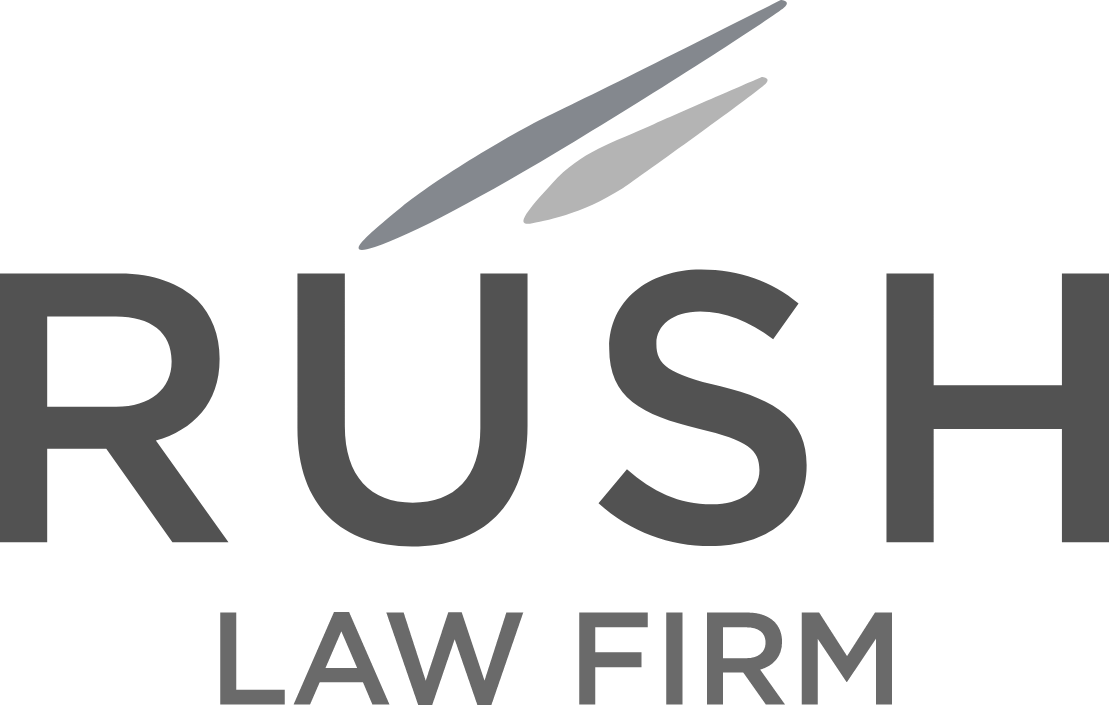OUR PRACTICE AREAS
Where legal precision meets human understanding
At Rush Law Firm, our practice areas reflect more than legal categories—they reflect our clients’ real-life challenges and the clarity they deserve. From family transitions to business disputes, we offer focused counsel grounded in experience, discretion, and results. We meet every case with the same promise: to provide thoughtful representation delivered with intelligence, empathy, and strategy that moves you forward.
Collaborative Law
FREQUENTLY ASKED QUESTIONS
WILL WE STILL HAVE TO APPEAR BEFORE A JUDGE?
In most cases, no. Your signed settlement is submitted to the court for approval, eliminating traditional hearings.
WHAT IF WE CAN'T REACH AN AGREEMENT?
If either spouse opts out, the collaborative attorneys must withdraw, giving you a clean slate to hire trial counsel. This kind of result is often a strong incentive to keep talks productive.
IS COLLABORATIVE LAW CHEAPER THAN LITIGATION?
Typically, yes. Fewer filings, shared experts, and a shorter timeline translate into lower overall fees and far less emotional cost.
IS COLLABORATIVE LAW ONLY FOR DIVORCE?
No. While collaborative law is common practice in the dissolution of a marriage, our experts can apply this to a range of family and business matters, like custody agreements, prenuptial/postnuptial contracts, and even business breakups, when both parties are willing to work toward mutual resolution.
WHY SHOULD I CONSIDER COLLABORATIVE LAW?
Collaborative law offers privacy, efficiency, and control over the outcome. It’s ideal for those who want to preserve relationships, especially when children, shared businesses, or long-term investments are involved.
DO BOTH PARTIES NEED TO AGREE TO USE COLLABORATIVE LAW?
Yes. Collaborative law only works when both sides commit to transparency, shared goals, and avoiding court. It’s a cooperative process by design.
Collaborative Law
Family Law Business Law
WHAT IS COLLABORATIVE LAW?
Collaborative law is a voluntary, out-of-court process in which both spouses and their specially trained attorneys work together to resolve every issue through open, transparent negotiation. The goal is a lasting agreement that protects the family’s future without the stress, cost, or conflict of litigation.
1. Both parties sign a participation agreement pledging full financial disclosure and a “no-court” rule.
2. A series of four-way meetings (sometimes with neutral financial or child specialists) identifies goals, explores options, and drafts a comprehensive settlement.
3. Once terms are finalized, the attorneys file a joint complaint and agreed-upon judgment, turning the plan into an enforceable court order, often without either spouse ever stepping inside a courtroom.
Rush Law Firm is helping lead the way in Collaborative Law in Mississippi, which provides a rare dual-track advantage: skilled facilitation backed by courtroom readiness if needed. With meticulous preparation, empathic listening, and a trusted network of financial and mental health professionals, our team keeps the focus on resolution, not rivalry.
Divorce
FREQUENTLY ASKED QUESTIONS
CAN DIVORCE AGREEMENTS BE CHANGED LATER?
It depends. Certain significant changes in income, custody needs, or life circumstances may grant the ability to modify support, custody, or other terms of your original agreement.
Reminder: a divorce agreement is a binding contract, so you want to make sure you truly agree to the terms before you sign.
WHAT IS COLLABORATIVE DIVORCE?
Collaborative divorce is a non-adversarial approach where both parties and their attorneys commit to resolving disputes outside of court. It’s ideal for those who value privacy, efficiency, and respectful resolution.
WHAT'S THE DIFFERENCE BETWEEN CONTESTED AND UNCONTESTED DIVORCE?
An uncontested divorce means both parties agree on key terms like asset division, custody, and support. A contested divorce involves disputes that may require mediation, negotiation, or litigation.
HOW CAN I PROTECT MY BUSINESS INTERESTS DURING A DIVORCE?
Business divorce requires careful valuation, clear documentation, and strategic negotiation. We work to preserve the continuity and value of your business while ensuring fair treatment for both parties. Whether you’re dissolving a partnership or separating personal and professional assets, we guide the process with discretion and a future-focused mindset.
WHAT SHOULD I EXPECT EMOTIONALLY AND LEGALLY DURING A DIVORCE?
Divorce is both a legal and emotional process. We guide you through decisions around asset division, custody, and support. Emotionally, we offer steady counsel and a process designed to minimize conflict. We aim to help you move forward with clarity, confidence, and dignity.
Divorce
Family Business
2. Strategic Negotiation or Collaboration: When possible, we pursue a straightforward, efficient path through negotiation or collaborative law, reducing conflict while protecting what matters most.
3. Litigation & Resolution: If court is required, we prepare with precision—advocating clearly, managing complex business interests, and delivering strong representation focused on long-term outcomes.
Custody, Adoptions & Family Matters
FREQUENTLY ASKED QUESTIONS
HOW IS CHILD CUSTODY DECIDED IN MISSISSIPPI?
WILL MY CHILDREN HAVE TO TESTIFY IN OPEN COURT?
At Rush Law Firm, we strive to keep children out of the courtroom unless absolutely necessary. We often work with a Guardian Ad Litem, a court-appointed advocate for children, to protect their interests and innocence during litigation.
WHAT'S THE DIFFERENCE BETWEEN LEGAL AND PHYSICAL CUSTODY?
Legal custody refers to the right to make important decisions about a child’s life (education, healthcare, etc.), while physical custody refers to where the child lives. Both can be shared or awarded solely depending on the child’s best interests.
CAN CUSTODY ARRANGEMENTS BE CHANGED AFTER A DIVORCE OR INITIAL AGREEMENT?
Yes. If there’s been a substantial change in circumstances—like a relocation or changes in a parent’s ability to care for the child—you can request a modification of custody or visitation orders.
HOW DOES THE ADOPTION PROCESS WORK?
Adoption involves terminating existing parental rights (if applicable) and legally establishing a new parental relationship. It typically includes background checks, home studies, court filings, and a finalization hearing.
HOW LONG DOES ADOPTION TYPICALLY TAKE?
Timelines vary by type (step-parent, private, agency, international), but most adoptions take several months to a year. Rush Law Firm helps streamline the process while meeting all legal requirements.
Custody, Adoptions & Family Matters
2. Strategic Planning & Negotiation: Our team develops a clear, customized plan aimed at resolving matters efficiently. We prioritize mediation or negotiation to minimize conflict, especially when children are involved.
3. Court Representation & Resolution: If a resolution outside of court isn’t possible, we will represent your interests with thorough preparation, advocating for a solution that serves your family’s best interests and provides long-term stability.
Business Law
FREQUENTLY ASKED QUESTIONS
DO I NEED AN LLC, OR IS A SOLE PROPRIETORSHIP ENOUGH?
An LLC shields your assets from business liabilities and can offer tax flexibility, protection that a sole proprietorship can’t provide.
CAN RUSH LAW BE MY "OUTSIDE GENERAL COUNSEL?"
Absolutely. Many clients keep us as retainers for contract reviews, compliance questions, and day-to-day legal guidance without the expense of in-house staff.
HOW FAST CAN YOU FORM MY COMPANY?
Once we have your basic information, we will complete standard filings within 24-48 hours; rush options are available for most states.
DO WE NEED A BUY-SELL AGREEMENT BEFORE PROBLEMS ARISE?
Yes—having one in place can slash costs and conflict if a split becomes inevitable. We can draft or update this agreement now to protect future interests.
Business Law
Formation Divorce
2. Negotiation & Structuring: We draft and review agreements—from operating documents to separation terms—with a focus on long-term stability and minimizing conflict.
3. Litigation & Transition: When resolution outside of court isn’t possible, we litigate with precision, ensuring you’re positioned for growth, protection, or a clean break—whichever the situation calls for.





